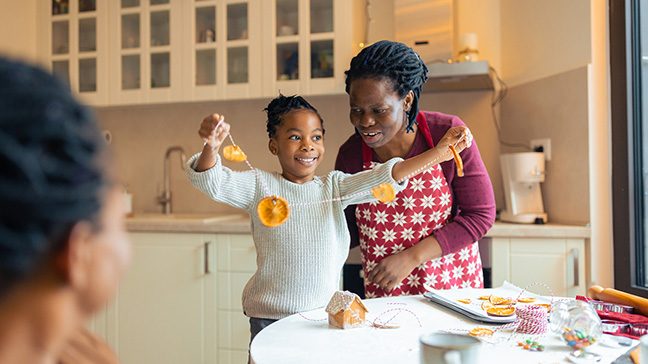Advance Care Planning: Conversations Worth Having
- Diagnosis & Treatment
- Patient Support
- Social Work
Social Work
The Department of Social Work has licensed clinical social workers who work directly with patients and caregivers as part of the multidisciplinary team. They are available to help patients and caregivers cope with the impact and changes that result from a diagnosis of cancer.
Services are free, can be provided in person or over the phone, and do not require a referral from a physician or medical team.
You may want to speak with your social work counselor if you have questions or concerns about:
- feeling overwhelmed
- adjusting to your diagnosis
- how your life is changing
- advance care planning
- not feeling safe at home
- the financial impact of your illness/treatment
- intimacy, sexuality and relationships
- talking to your children about your diagnosis
- transitions in care
Contact Information
Phone: 713-792-6195
Locations:
Main Building, Floor 2, near The Park, B2.4650
Hours: Monday-Friday, 8 a.m.-5 p.m.
Online Support Groups
Social Work offers virtual support groups for patients and caregivers. Learn more about online support groups.
Counseling
A cancer diagnosis can mean increased distress for patients and their loved ones. Highly skilled and professionally trained in counseling, clinical social workers provide short-term counseling free of charge to patients and caregivers.
Counseling services include:
- Adjustment to diagnosis and treatment
- Coping with life changes
- Relaxation and mindfulness
- Advance care planning
- Crisis intervention
- Grief and loss
- Sexuality and intimacy
- Relationship safety
- Talking to children/teens whose parents have cancer
CLIMB: Children's Lives Include Moments of Bravery
KIWI: Kids Inquire, We Inform - Couples/family
- Support groups
Advance Care Planning
Advance care planning is a process that helps you express your values, goals and wishes as they relate to your health care. The process involves:
- Thinking about what is important to you
- Discussing your values and goals
- Recording this information
- Requesting that your medical team and your medical power of attorney honor your goals and wishes
- Reviewing this information periodically
Social work counselors provide support and assistance to patients and/or caregivers in several aspects of advance care planning including:
- Communication with team
- Treatment decisions
- Advance directives
- Legacy planning
Resource Linkage
MD Anderson clinical social workers serve as a liaison between patients, the health care system and the community. Based on your specific needs, your social worker will help identify appropriate resources, including:
- Community resources (including housing, transportation, and other practical concerns)
- Financial counseling
- Employment
- Health insurance
- Safety (abuse, neglect, exploitation)
Memorial Service
Social Work conducts one annual adult memorial service for families, friends, hospital staff and the community to commemorate the lives of those they have lost.
For more information, call 713-792-6195.
Training for Graduate Students
The Social Work Internship program offers field placement opportunities to second-year Master of Social Work students. The program provides the highest quality hands-on learning experience, preparing students to enter the social work profession with confidence in their skills and knowledge.
Students pursuing the MSW degree
MD Anderson has both inpatient and outpatient social work settings. Opportunities for enhancing clinical, documentation, and interpersonal skills as a social work practitioner are available in both areas.
MD Anderson also offers practicum opportunities in Social Work administration. These students carry a limited clinical caseload and are involved in areas including program evaluation, policy and procedure development and review, and/or grant location and writing.
All students are required to participate in a departmental orientation program, and are then assigned to the service of their Field Instructor. Students are required to be in the field three days a week for two semesters for a consecutive placement, or five days a week for one semester for a block placement. During their experience, students participate in an interdisciplinary team approach to care, including patient teaching, planning conferences and chart rounds with physicians, nurses and other team members.
Staff development presentations are offered within the Social Work department. Students are expected to present at one staff development meeting. Weekly brown bag presentations on various topics are offered, and there are other opportunities to attend continuing education presentations within the institution.
Students seeking this placement should be independent and able to function with some degree of autonomy once established within their service. We promote the choosing of a learning experience, which would move students toward realizing their professional educational goals.
The Clara B. Smith Training Center
The Clara B. Smith Training Center was established in honor of Clara Blackford Smith of Denison, Texas. Mrs. Smith was a longtime friend and benefactor of the Social Work department, frequently contributing financial support for indigent patients and training institutes for Social Workers throughout Texas.
The grant provides funds for student stipends for second-year Master of Social Work (MSW) or Master of Science in Social Work (MSSW) students who either are in a health care specialization or have a strong interest in health care social work.
Graduate students seeking more information should get in touch with Annabelle Bitter, LSCW, at 713-792-7138.
Advance Care Planning
Support Groups
In the News
request an appointment online.
Help #EndCancer
Give Now
Donate Blood
Our patients depend on blood and platelet donations.
Shop MD Anderson
Show your support for our mission through branded merchandise.





